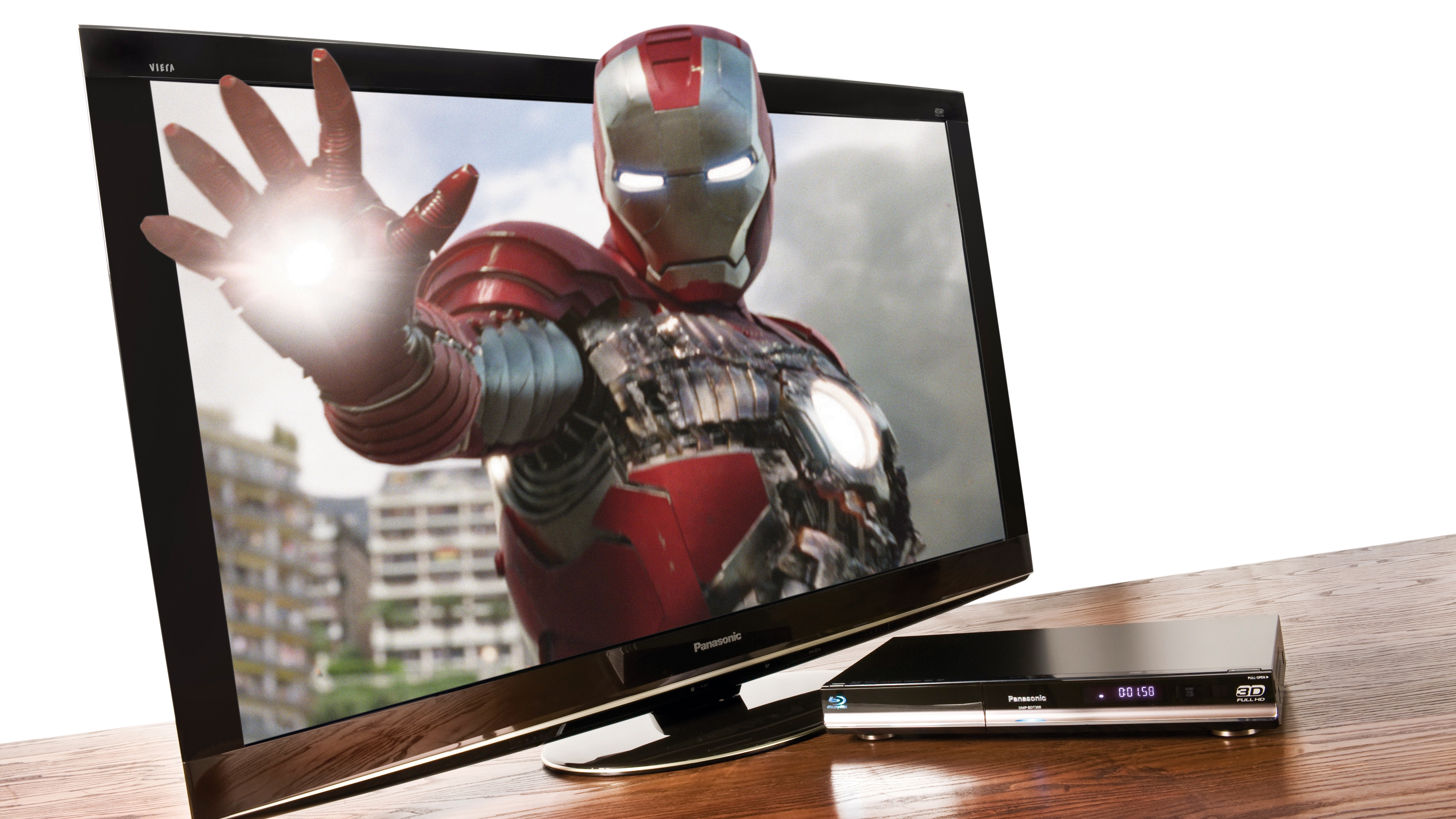4K Blu-ray is dead tech walking
You don't need it unless you live in a cinema palace

Here's why you don't need 4K Blu-ray: it's dead tech walking. The optical disc is going the way of the bakelite telephone, elaborate sideburns, wax cylinders, my hairline and Miley Cyrus's modesty, and 4K Blu-ray is its last hurrah.
It's also completely pointless, because even when most content is recorded in 4K (also known as Ultra HD) - something that definitely isn't the case yet - most people won't get any benefit from 4K.
Sony's blurb about its 4K TVs is hilarious: the key benefit of 4K appears to be that you can sit much closer to your TV, which is something I'm sure we've all been clamouring for. At last we'll be able to sit 3.6 feet away from our 55-inch screens!
The average viewing distance for most of us is 9 feet. From that far away, you won't notice the 4K difference until your TV's bigger than most people's living room walls. According to Toshiba, for HD you should be between 5.5 feet and 8.7 feet from a 55-inch display; presumably for 4K you'd need to be so close you'd go cross-eyed.
It's like the megapixel myth in cameras: never mind the quality, just count the pixels.
At last we'll be able to sit 3.6 feet away from our 55-inch screens!
And that's not the only reason to be cynical.
Sign up for breaking news, reviews, opinion, top tech deals, and more.
If this is the answer, what's the question?
4K Blu-ray is designed to solve a problem, but it's not your problem: it's the consumer electronics industry's.
And it's rather like the problem the consumer electronics industry had in the 1990s when there was nobody left who hadn't upgraded from vinyl to CD. With CD players no longer flying off the shelves or commanding premium prices, they tried to foist endless new technologies on us: MiniDisc, Digital Compact Cassette, Super Audio CD and DVD-Audio.
They all flopped, because it turned out we didn't want higher bitrates: we wanted better convenience and lower prices. We wanted downloads and streaming.
History is repeating. Now everybody's upgraded from 4:3 to widescreen and from CRT to true HD, HDTVs are no longer flying off the shelves or commanding premium prices. Hence 3D, 4K and 4KBD. 4K Blu-ray promises "a stunning 32 channels of uncompressed audio".
Who on earth has a 32-channel sound system?
I suspect that for most of us, what we really want is downloading and streaming. I certainly do. I spent last weekend hurling endless discs into skips because all my media is digital, and while I'm sure Breaking Bad would be just great in 4K my house isn't big enough - and my pockets aren't deep enough - for the screen I'd need to notice the difference over Netflix's perfectly decent Super HD.
And of course Netflix is about the price of a Big Mac meal a month for all of BB and everything else Netflix has; the Blu-ray of the first half of Breaking Bad Season 5 is over £20/$30. I shudder to think what the 4K discs would cost.
Don't get me wrong. I'm sure the home cinema buffs who buy into 4K Blu-ray will absolutely love it, just as the audiophiles who bought into Super Audio CD and DVD-A absolutely loved those technologies.
But the former is going to suffer the same fate as the latter, replaced by technology that might not be technically superior, but which suits everybody better. The discs might have a niche for as long as movie buffs can't get fibre broadband, but it's a niche that won't last for long.
CDs are already obsolete. Movie discs are next.

Contributor
Writer, broadcaster, musician and kitchen gadget obsessive Carrie Marshall has been writing about tech since 1998, contributing sage advice and odd opinions to all kinds of magazines and websites as well as writing more than twenty books. Her latest, a love letter to music titled Small Town Joy, is on sale now. She is the singer in spectacularly obscure Glaswegian rock band Unquiet Mind.